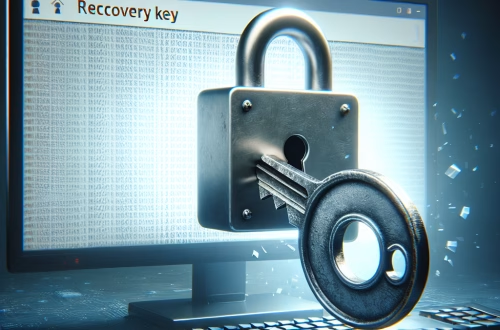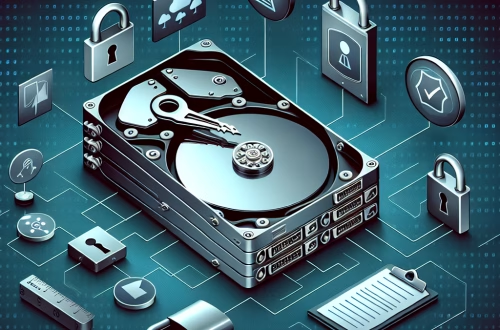Backup BitLocker Recovery Key To Cloud Explained:
Backing up the BitLocker Recovery Key to the cloud is a security feature in Windows that allows users to store their encryption recovery key in Microsoft’s cloud storage (Azure Active Directory or Microsoft Account). This ensures the key is securely accessible if local recovery methods fail. The recovery key is a 48-digit numerical password required to unlock BitLocker-encrypted drives when authentication methods like TPM or PIN fail. Common triggers for needing this key include hardware changes, firmware updates, or forgotten credentials. Cloud backup mitigates data loss risks by providing a failsafe recovery method.
What This Means for You:
- Immediate Impact: If BitLocker triggers a recovery request, having the key backed up to the cloud ensures quick access without relying on local backups or printed copies.
- Data Accessibility & Security: Cloud backup enhances security by preventing unauthorized access while ensuring authorized users can retrieve the key from any location.
- System Functionality & Recovery: Without the recovery key, you risk permanent data loss. Cloud backup simplifies recovery, especially after hardware failures or system resets.
- Future Outlook & Prevention Warning: Always verify cloud backup success and periodically check key accessibility to avoid lockout scenarios.
Backup BitLocker Recovery Key To Cloud:
Solution 1: Backing Up the Recovery Key to Microsoft Account
For personal devices linked to a Microsoft Account, Windows automatically prompts to back up the BitLocker recovery key during encryption setup. To manually verify or back up:
- Open Settings > Update & Security > Device encryption (or BitLocker for Pro editions).
- Select Manage BitLocker and click Back up your recovery key.
- Choose Save to your Microsoft account and follow prompts.
For domain-joined devices, administrators configure Azure AD backup via Group Policy (Computer Configuration > Administrative Templates > Windows Components > BitLocker Drive Encryption).
Solution 2: Retrieving the Recovery Key from the Cloud
If locked out of a BitLocker-encrypted device:
- Visit Microsoft’s recovery key portal.
- Sign in with the linked Microsoft Account.
- Locate the device and copy the 48-digit recovery key.
- Enter the key at the BitLocker recovery prompt.
For Azure AD-backed keys, administrators retrieve them via the Azure Portal under Devices > BitLocker Keys.
Solution 3: Troubleshooting Cloud Backup Failures
If the key fails to back up:
- Ensure the device is connected to the internet during encryption.
- Verify the Microsoft Account or Azure AD linkage under Settings > Accounts.
- For domain-joined devices, confirm Group Policy permits cloud backup (
Enable BitLocker backup to Azure AD).
Use PowerShell to force backup: Backup-BitLockerKeyProtector -MountPoint "C:" -KeyProtectorId (Get-BitLockerVolume -MountPoint "C:").KeyProtector[0].KeyProtectorId.
Solution 4: Alternative Recovery Methods
If cloud backup is unavailable:
- Use a previously saved USB or file-based recovery key.
- Contact your IT administrator for Azure AD or Active Directory-stored keys.
- For standalone systems, use the
manage-bde -protectors -get C:command to list recovery options.
People Also Ask About:
- Can I back up BitLocker keys to Google Drive or Dropbox? No, Windows only supports Microsoft Account or Azure AD for cloud backup.
- Is cloud backup mandatory for BitLocker? No, but it’s recommended to prevent lockouts.
- How do I know if my key is backed up? Check under BitLocker settings or the Microsoft Account recovery portal.
- Can hackers access my cloud-backed recovery key? Unlikely; Microsoft enforces multi-factor authentication and encryption.
Other Resources:
Suggested Protections:
- Enable multi-factor authentication on your Microsoft Account/Azure AD.
- Periodically verify recovery key accessibility in the cloud.
- Combine cloud backup with offline storage (e.g., printed key).
- Audit BitLocker policies via Group Policy or Intune for enterprises.
Expert Opinion:
Cloud backup of BitLocker keys is a critical yet underutilized feature. Enterprises should prioritize Azure AD integration to streamline recovery, while individuals must avoid sole reliance on local backups. As cyberthreats evolve, balancing accessibility and security through cloud-backed keys ensures resilience against data loss.
Related Key Terms:
- BitLocker Recovery Key
- Azure Active Directory (Azure AD)
- TPM (Trusted Platform Module)
- BitLocker Group Policy
- Microsoft Account Recovery
*Featured image sourced by Pixabay.com




